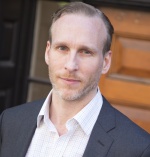Wednesday, November 19, 2014
 by Michael Hamill Remaley, SVP, Public Policy & Communications
by Michael Hamill Remaley, SVP, Public Policy & CommunicationsThis piece was originally published as the feature article for the November 2014 issue of the New York PhilanthroPost Policy Edition.
A lot of Philanthropy New York’s panel discussions, workshops, funder briefings and other programming are fairly cerebral affairs. For a guy like me who treasures the rational decision-making process, information is crucial and feelings are generally irrelevant. Still, a recent event produced by PNY’s Education Funders Research Initiative had me feeling emotions I wasn’t prepared for.
Last week was the second in the EdFunders series of “Listening Sessions.” We gathered education practitioners – principals, superintendents and leaders of education support organizations – together with funders and leaders from the New York City Department of Education. The Listening Sessions look at each of the Six Priorities for education reform identified in research released last year. Last week’s session focused on the Common Core and provided an opportunity for education practitioners to hear from a national expert – Linda Darling-Hammond – and local peers about the challenges and opportunities of applying the revised approach to teaching and learning. In some ways, the education practitioners in the room are the real experts because they are living the reality of education reform every day.
I, on the other hand, have been on the periphery of education reform for over a decade. I became aware of the development of the Common Core standards when I was still running communications for Public Agenda in 2007, which was doing a lot of public engagement work around the country on a variety of education topics. Having been immersed in the EdFunders project for the past two years, I’ve kept up with education reform topics, but I am anything but an expert.
I know just enough to be jaded. Darling-Hammond spoke about how Common Core standards are intended to improve the way kids think critically and apply a broad range of learning skills to develop more complex problem solving abilities to be used in college and career. I felt like it was an erudite reading of the situation, but not new information to me. The panel discussion of leading education practitioners that followed was also exceptionally thoughtful, but those educators were ones who had never followed the siren song of rote learning and excessive test prep.
Then, I followed the educators into a break-out session, in which the moderator started by asking the packed room if anyone had immediate reactions to what they’d heard in the preceding hours. The first person who spoke up said that Darling-Hammond’s overview was the first time she had heard such a clear articulation of what the Common Core is supposed to achieve and how it might actually move teacher and school practices in positive directions toward the kind of learning that students really need. The second person who spoke up said that it was the first time she has heard from other educators about how they are really making Common Core work in their schools and she now better understood the great promise of it all. The third person, the fourth person and the fifth person all talked about how this day was the first time they’d heard discussion of the Common Core in ways that would help them move it forward in their own practice.
And that’s when the tears started to well up in my eyes. How could this be? How could I – so much on the periphery of education reform –feel like I’d heard it all before, and those who are living education reform every day feel like they’re hearing the Common Core discussion in a positive and meaningful way for the first time? What is wrong with our system that these immensely important people – and frankly, just a tiny fraction of the education community – are just now having the opportunity have this conversation? I was simultaneously overwhelmed with sadness that there are not more resources available to make these kinds of conversations happen on a broad basis and filled with immense pride that I was a small part of making this one day’s dialogue happen.
I sat in the corner quietly and wiped a tear from my eye while I tried to disguise this fact by blowing my nose. I pulled myself together pretty quickly, but I’ve been thinking about it a lot over the past week.
My work, like that of a lot of people these days, boils down to the tedium of emails, seemingly endless meetings, dry reports and more panel discussions than I can count. Occasionally, I am reminded that it does make a difference, eventually. And sometimes that revelation reduces you to sniveling in the corner of a crowded meeting room. And that’s a good day.
